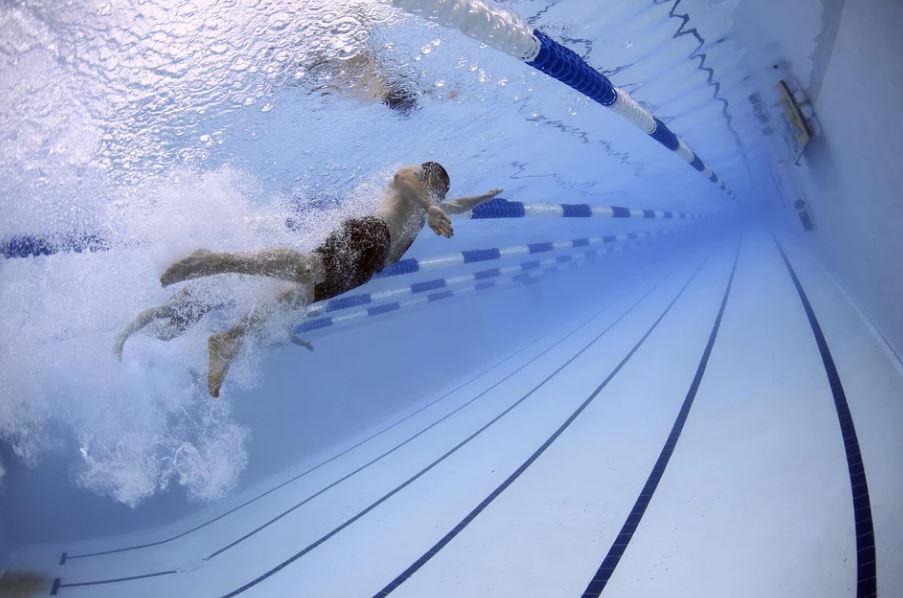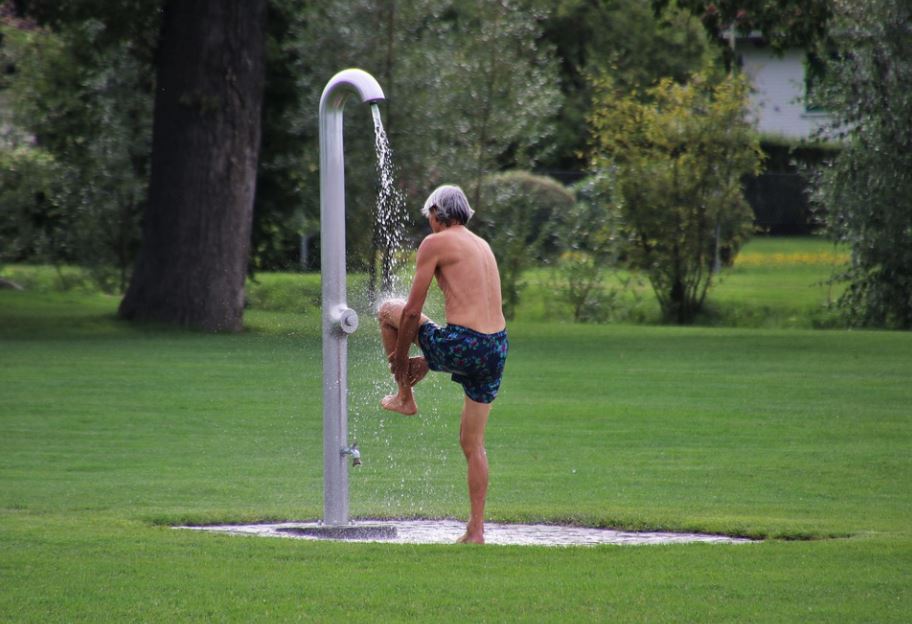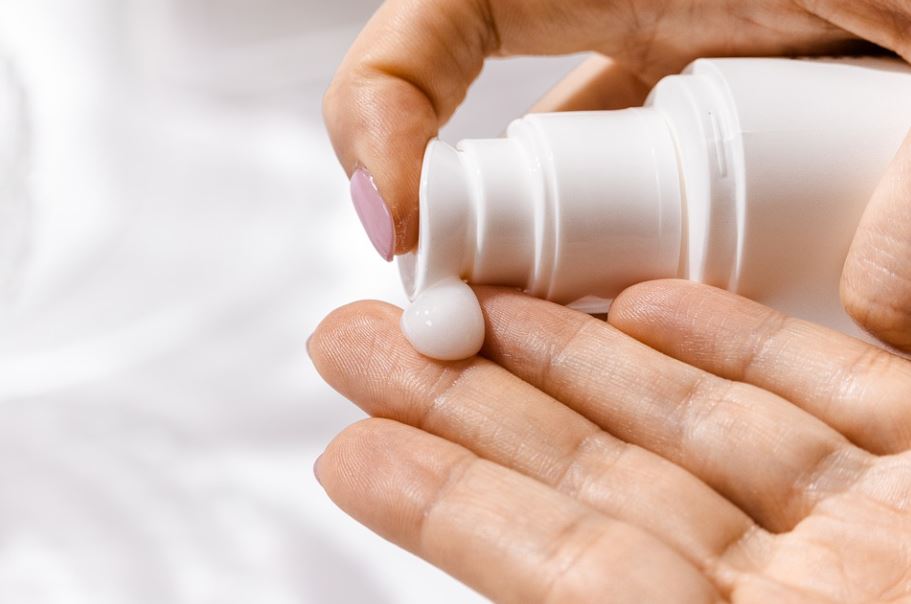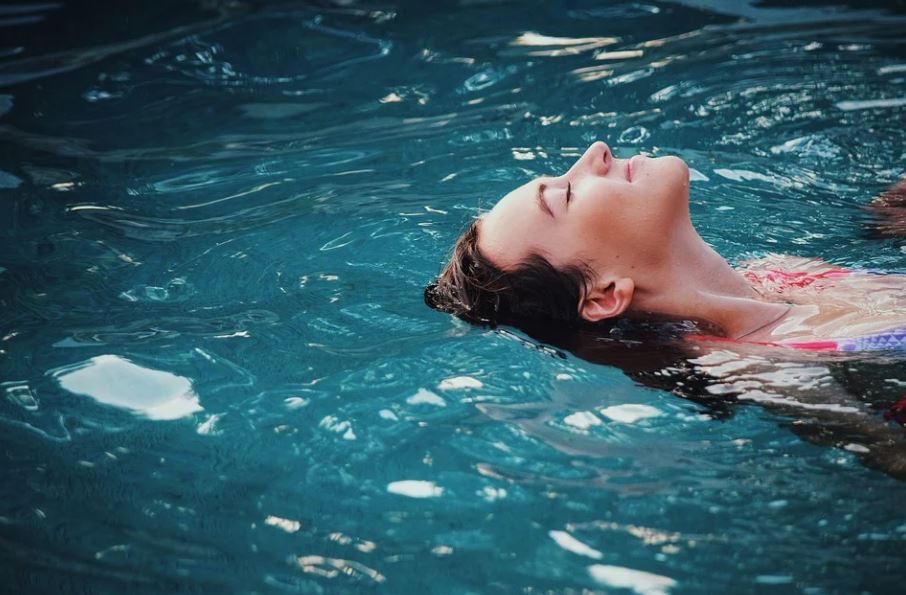It’s definitely a perfect day when you spend a large amount of your summertime day relaxing by the pool or the beach. While you’ll get in some excellent relaxation and fun “me time,” spending lots of time in the water may leave you with more than pruney fingers.
Swimming is a kind of workout that is good for your physical, emotional, and mental well-being. On the other hand, swimming outside has various disadvantages, including overexposure to ultraviolet rays from the sun and several chemicals in the water, such as chlorine. Chlorine is used in swimming pools to prevent illnesses, kill harmful bacteria, and maintain water quality. It can, however, create a variety of skin problems.
If you are swimming in a pool, you may be concerned about the chlorine and many other chemicals in the water harming your skin. On the flip side, swimming in seawater can dehydrate your skin and cause it to become dry and sensitive. Chemicals in swimming pools can also harm your hair. Hair might lose its suppleness and sheen when exposed to disinfectants in the water.
But because swimming pools and beaches are hard to resist, here are some ways to avoid or reduce the harmful effects of swimming.
BEFORE SWIMMING
1. Take off your makeup before you go swimming.
Regularly going to the pool can cause your skin to lose suppleness, become dry and damaged, and speed up the aging process. Remove your makeup before going swimming. A chemical reaction may occur when you combine chlorine and makeup products, causing allergies and skin irritation.
2. Take a shower before you go swimming.
Chlorine can irritate the skin. Hair and skin are less prone to take in water in the pool or the beach when they’re already wet.
Before swimming in the pool, wet the skin to minimize the amount of water and chemicals absorbed by your body and reduce the chance of skin irritation. Begin by rinsing your body in the shower with water. This will guarantee that your skin is clear of sweat, skin oils, makeup products, and other contaminants that could irritate your skin when combined with chlorine in the pool.
3. Moisturize your skin before dipping in water.
It is ideal to use a moisturizing cream before swimming to keep your skin in good shape. This helps create a space between your skin and the water in the pool, reducing skin dryness.
Apply thoroughly a moisturizer containing squalene and zinc. These will aid in the protection of your skin against harmful chemicals and toxins found in water.
4. Apply lotion and sunscreen before swimming.
It’s a good idea to use a chlorine-neutralizing lotion on your skin before going for a swim. You can avoid chlorine rashes and minimize any skin damage.
If you’re swimming outdoors, don’t forget to use sunscreen. Use waterproof sunscreen after applying moisturizer at least 10 to 15 minutes before going outside to protect your skin from sun damage. If you’re swimming in direct sunlight, wear sunscreen with SPF 30 or higher.
Reapply your sunblock whenever you get out of the water and at least every two hours to keep your skin safe from the heat. Always apply a generous amount. It is advisable to swim early, preferably before 10 in the morning, or late at night, after 5 in the afternoon.
DURING SWIMMING
1. It is better to swim in outdoor swimming pools.
Outdoor swimming pools allow the water’s toxins to flow into the air, resulting in fewer chemicals that can harm your skin.
Freshwater pools with clean water are also a wonderful alternative because they don’t possess salt or potentially harmful chemicals. If you plan on swimming indoors, choose a pool with sufficient ventilation and minimal chlorine levels.
2. Use a swimming cap.
A swim cap helps in protecting your hair and scalp. Also, if the cap is of excellent quality, you can wear it without washing your hair as it can minimize exposure to the sun and the harmful chemicals in the water.
However, the best technique to prevent the harmful chemical effects in swimming pools is to wash and condition immediately after swimming.
AFTER SWIMMING
1. Do not over swim or stay in the pool for a long time.
The more time you spend in the water, the more harm you inflict to your skin. Because of the chemicals in the pool, your skin will begin to prune, dry, and tighten over time. Take frequent breaks from the water and limit your time in the water to two to three hours only.
It is also a great idea to shower in between swim sessions or whenever you get a chance to get in and out of the water while swimming. It will help minimize the time the chemicals in the pool or the ocean water remain on your skin.
2. Shower immediately after leaving the pool.
Go directly to the shower and rinse the minute you come out of the water. Swim in freshwater- saltwater pools or the ocean, if possible.
After swimming, wash your hair and skin to remove all of the chemicals. Taking a shower as early as possible will aid in eliminating any chlorine or salt from your skin before it dries out and causes unwanted reactions.
Wash your hair with a mild shampoo and conditioner, then cleanse your body with a mild soap or cleanser. Extensively massage your scalp and wash your hair. If you clean it fast, some chlorine may remain in the hair follicles.
3. Use a mild cleanser or shower gel.
When showering, use a mild cleanser or shower gel on your skin. And because hot water can cause dryness to the skin, shower with lukewarm or cool water.
Make sure to clean your entire body thoroughly. Do not forget to wash your feet and toes. To rub off the pool or ocean water on your skin, gently wipe your body with a mild shower gel using a clean washcloth.
4. Apply moisturizer after taking a shower.
Since even tap water contains some chlorine, it’s vital to moisturize after taking a shower. After you’ve finished showering, apply a moisturizing cream or moisturizing lotion to your skin.
To moisturize and help repair the pH balance of your skin, look for a lotion that contains alpha-hydroxy acid and ceramides. This will aid in retaining the moisture of your skin and prevent it from becoming too dry. Apply the lotion all over your body, including your toes, fingers, and behind your ears.
5. Apply conditioner and avoid blow-drying your hair.
Upon washing your hair, use a protective moisturizing conditioner to enable hair regeneration and aid your hair to stay healthy. It will also protect your hair against the effects of harmful chemicals in the pool in the future.
Brush your hair with a thick wide-tooth comb to detangle the stubborn hair. Also, remember to avoid using blow dryers. Avoiding them will help to keep hair damage to a minimum.






